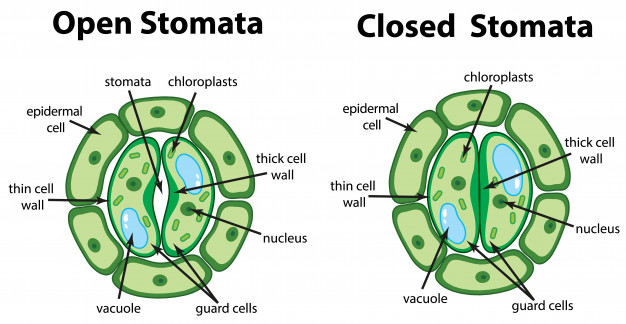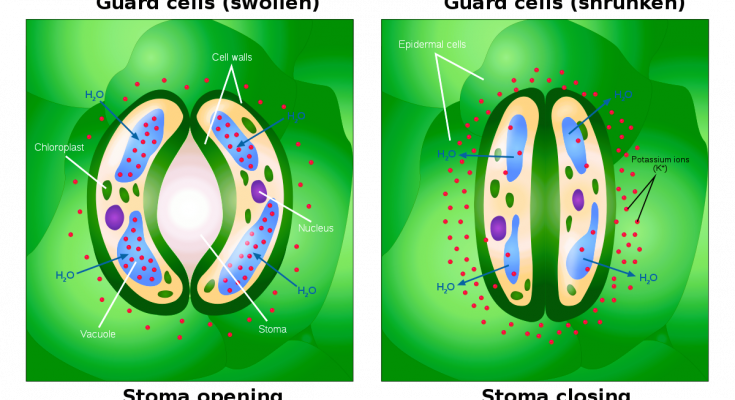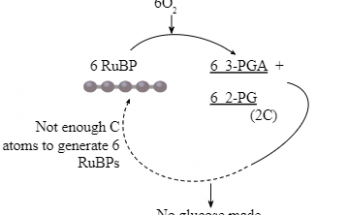Table of Contents
Mechanism of Opening and Closing of Stomata
- The opening and closing of stomata takes place due to changes in turgor pressure of guard cells.
- It is also regulated by factors such as light, plant carbon dioxide levels, and changes in environmental conditions.
- Generally, stomata are open during the day and close at night.
- When the guard cells are turgid (full of water), they are open and allow gas to enter the stomata. However, When the guard cells are flaccid (less water), they are closed to prevent air exchange and water loss.

3 Important Theories to Explain the Mechanism of Opening and Closing of stomata
Several theories have been formulated to explain the mechanism of opening and closing of stomata. They are explained as follows:
- The Starch – Sugar Interconversion Theory
- Proton – Potassium Pump Hypothesis
- Synthesis of organic solutes
The Starch – Sugar Interconversion Theory
- The Starch – Sugar interconversion Theory was given by Steward in 1964.
- According to this theory, during day time phosphorylase enzymes convert the starch into sugar due to which the osmotic potential of the guard cell increases and allows the entry of water into the cell.
- During the night the same reaction occurs in the reverse direction which closes the guard cell.
Proton – Potassium Pump Hypothesis
- Proton – Potassium Pump Hypothesis is a modified version of the mechanism of stomatal movement. It was given by Levit in 1974.
- According to this hypothesis K+ ions are transported into the guard cells in the presence of light. This causes water in the enlarged guard cells to move osmotically from an area of low solute concentration (guard cells) to an area of high solute concentration (surrounding cells).
- The loss of water in the guard cells causes them to shrink leading to closure of the stomatal pore.
- When conditions are favorable such that stomata need to open, potassium ions are actively pumped back into the guard cells from the surrounding cells.
Synthesis of organic solutes
- Synthesis of organic solutes: According to this theory, light greatly influences the opening and closing of the stomata.
- Light stimulates the production of malic acid by stimulating the starch degradation.
- In the presence of light, guard cells also perform photosynthesis. Stomata opens only in the blue and red light spectrum.
Also Check – Stomata – Structure, Functions , Location , Diagram and Types
Also Check – Stomatal Transpiration


6 Comments on “Mechanism of opening and Closing of the Stomata”